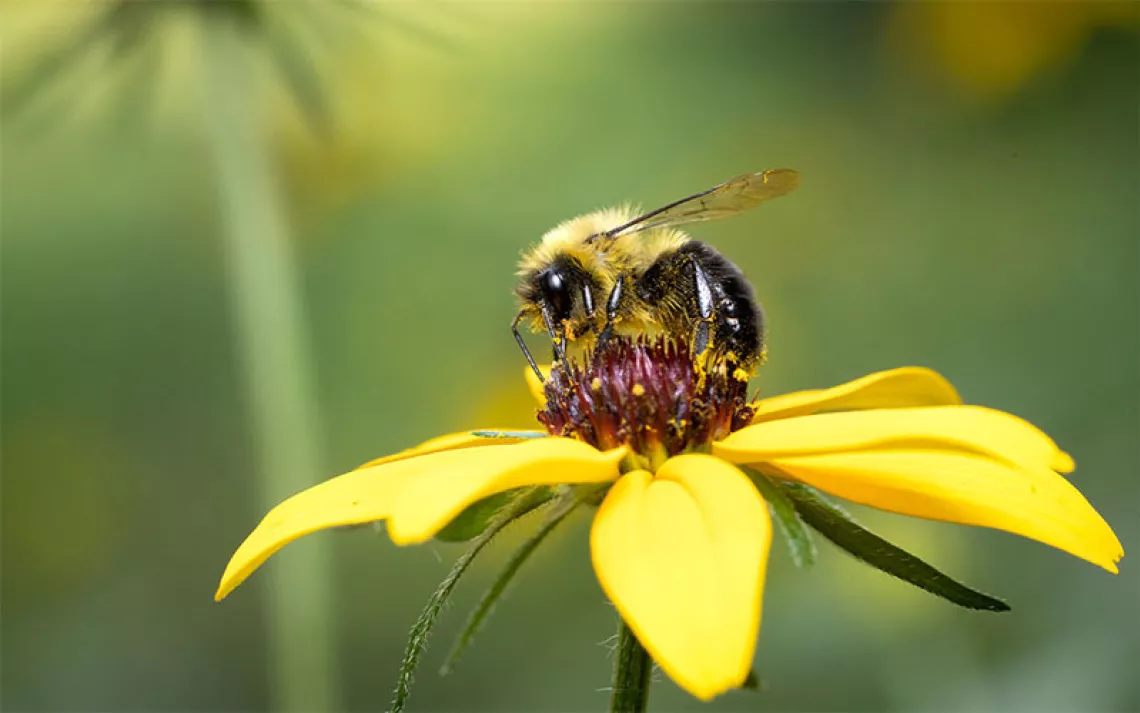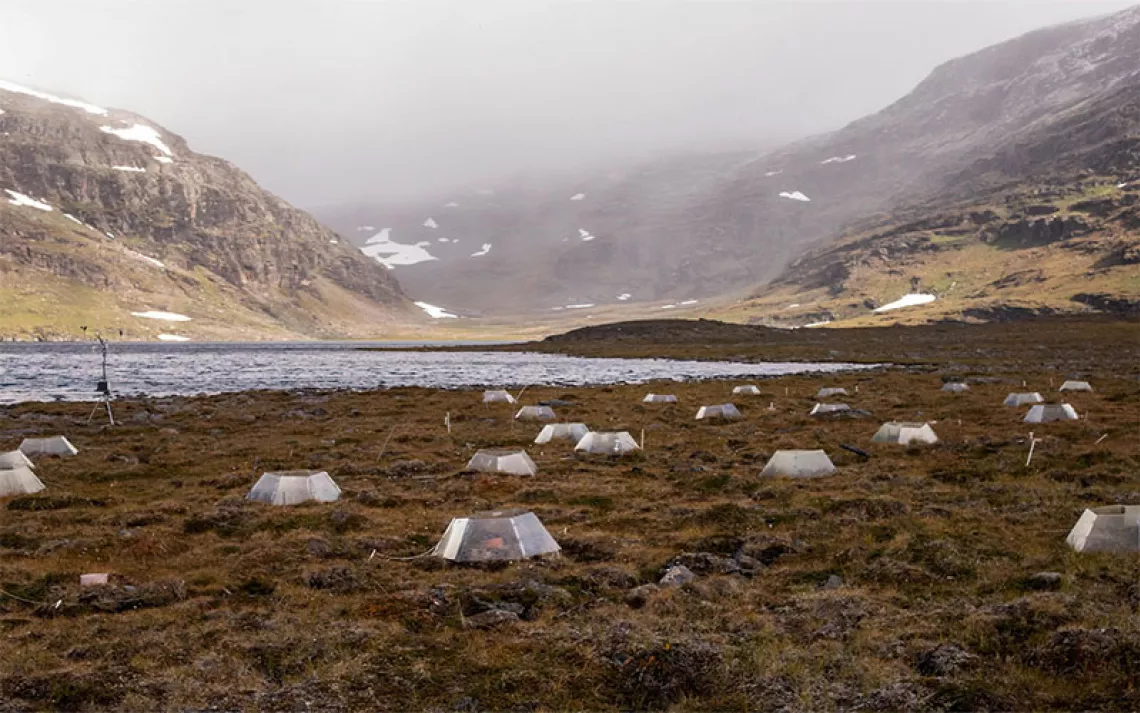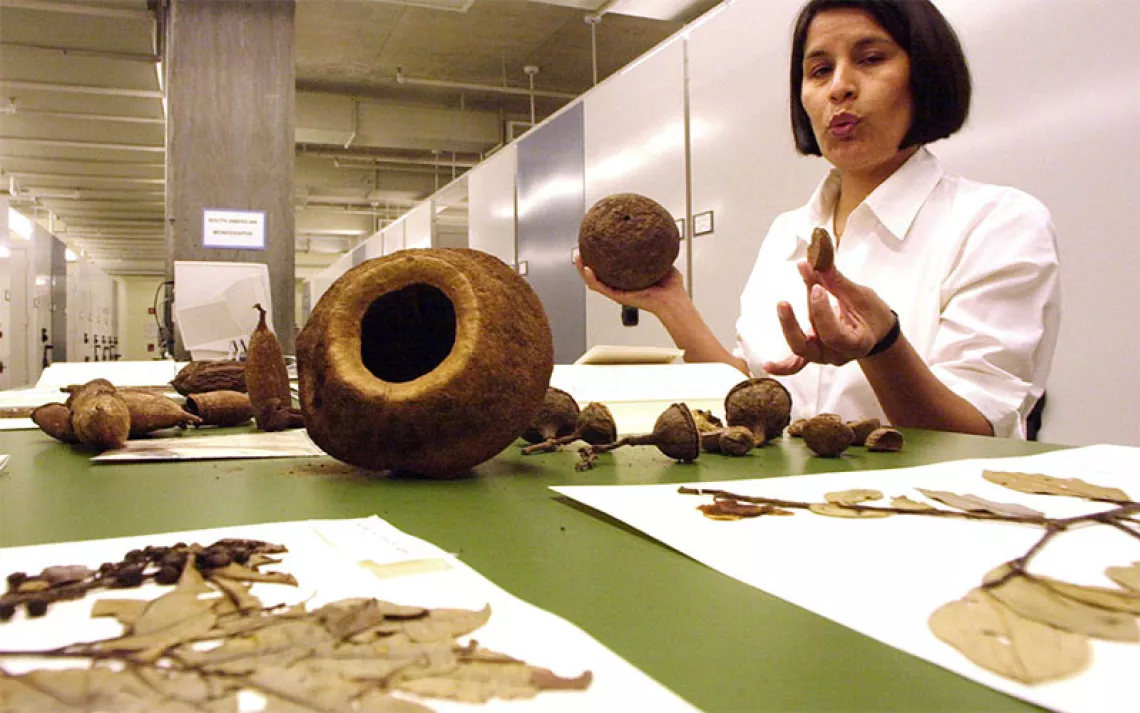We're Making Mosquitoes Long for Us
Climate change + urbanization = a thirst for human blood

Image by Chansom Pantip | iStock
Mosquitoes are one of humanity’s most deadly predators. This is not because of the blood that they take, which we can afford to lose, but because of the diseases—like malaria, dengue, and Zika—that they can spread when they bite. Those bites, however, come from just a small slice of the mosquito species out there. Out of 3,500 species of mosquito, only a handful target humans directly.
Unfortunately, we seem to be building our cities—and altering our climate—in a way that encourages mosquitoes to seek out human prey. In a new study, published in Current Biology on Thursday, an international team of researchers found that as droughts become more intense and cities become more densely populated and push out into rural areas, local mosquitoes are more likely to become thirsty for human blood.
It’s long been known that different species of mosquito prefer to bite different hosts, but this is the first study to take a stab at why that is. To uncover how mosquitoes got a taste for human blood, scientists traced the evolution of the trait, looking in the birthplace of the mosquito: Africa. Researchers from Princeton partnered with labs across sub-Saharan Africa from Senegal to Kenya to collect Aedes aegypti eggs from sites in 27 locations.

Researchers Noah Rose and Gilbert Bianquinche surveying a tree hole for Aedes aegypti larvae. | Photo courtesy of Massamba Sylla
Back in the lab, they measured what scent these mosquitoes were more attracted to: human or another animal (guinea pig or quail). “We had this idea of forest mosquitoes and town mosquitoes,” said Noah Rose, a lead author on the study. “We thought that wherever mosquitoes live alongside people, they’ll be adapted to biting people. And if they live in the forest, they’ll bite other animals.”
This idea did hold some water: Mosquitoes from dense cities showed a higher preference for humans than mosquitoes from rural or wild places. But, researchers discovered another driving factor: climate. Mosquitoes from places with long, hot dry seasons showed a higher preference for human smell than those from places with more consistent rain.
These climate conditions were likely the original reason that mosquitoes began to seek human blood in the first place. In elongated dry seasons, human settlements were a good place to find water—as the study puts it, “Humans are unique among animals in the ways that we manipulate water, channeling it into ditches for irrigation and bringing it into our homes for drinking, cooking, and washing.” Mosquitoes that fed off humans—and then laid their eggs in the water nearby—would fare better than those mosquitoes that preferred biting other species.
By specializing in humans, those species spread nearly everywhere that we have. The mosquitoes that survived crossing the Atlantic were ones that had adapted to target humans. Worldwide, most invasive mosquito species are human-biting ones.
The researchers found that big, densely populated cities in places with intense dry seasons were home to mosquitoes with the strongest preference for humans. They also found that while both climate change and urbanization threaten to push mosquitoes more toward human hosts, right now the rapid growth of cities is the primary force that is granting human-preferring mosquitoes the opportunities to out-compete other species.
“Although climate change is progressing all throughout sub-Saharan Africa, its effects on these specific precipitation factors will be relatively subtle in the next few decades,” Rose said. “On that same time scale, the effects of urbanization are not subtle.”

In cities without good water infrastructure, people store water in ways that can provide mosquito habitat. | Photo courtesy of Noah Rose
Human-biting mosquitoes thrive in urban environments across the globe, so anywhere with rapidly growing cities and poor water storage is a potential hub for mosquitoes. Fortunately, the science of how to limit habitat for mosquitoes in cities is already well-established. A lot of it comes down to cultural practices of water storage and infrastructure of water use, Rose said. Cities that build and maintain good water infrastructure (and provide that infrastructure to all of their residents) can go a long way toward mitigating a mosquito-spread viral outbreak.
This research is just the beginning. Rose is still trying to understand what genes control what specific traits and why mosquitoes target us over the domestic animals that nearly always accompany us.
In the meantime, this study is even more proof of how the presence of humans can impact huge processes like evolution on relatively short time scales. “Mosquito history and human history are tied together,” Rose said. “When we change the natural world, the natural world responds.”
 The Magazine of The Sierra Club
The Magazine of The Sierra Club



